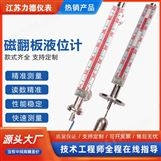Head-Out Plethysmography頭部外置體積描記器
The EMMS head-out plethysmography system can be used in a variety of applications involving chronic studies. The animal is conscious and placed inside a head-out plethysmograph (eg. PLY 231). A latex rubber neck seal ensures that the thoracic chamber is airtight. Movement of the animal's chest as it breathes inside the plethysmograph is directly related to respiratory flow, and this is measured using a TPF 100 transducer across a pneumotachograph in the wall of the thoracic
chamber. A number of parameters (such as tidal volume, breathing rate, inspiratory time and expiratory time) can be derived from the flow signal.
Parameters Measured
· Tidal volume
· Inspiration time
· Expiration time
· Peak inspiratory flow
· Peak expiratory flow
· Breathing frequency
· Minute volume
· Accumulated volume
· End inspiratory pause
· End expiratory pause
· Explanations and more parameters
Features
· Fully non-invasive
· Subject is conscious throughout the study
· No anaesthesia
· Range of species including mice, rats, and guinea pigs
· Optional head box for administering aerosol
· Multiple animals can be monitored simultaneously
Uses
· Chronic Studies with multiple respiratory assessments
· Safety pharmacology
· Toxicology/inhalation exposure studies

|

|

|

|

|

|
*您想獲取產品的資料:
個人信息: